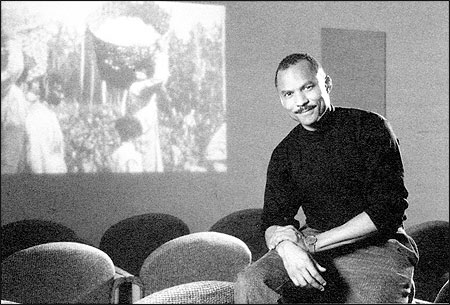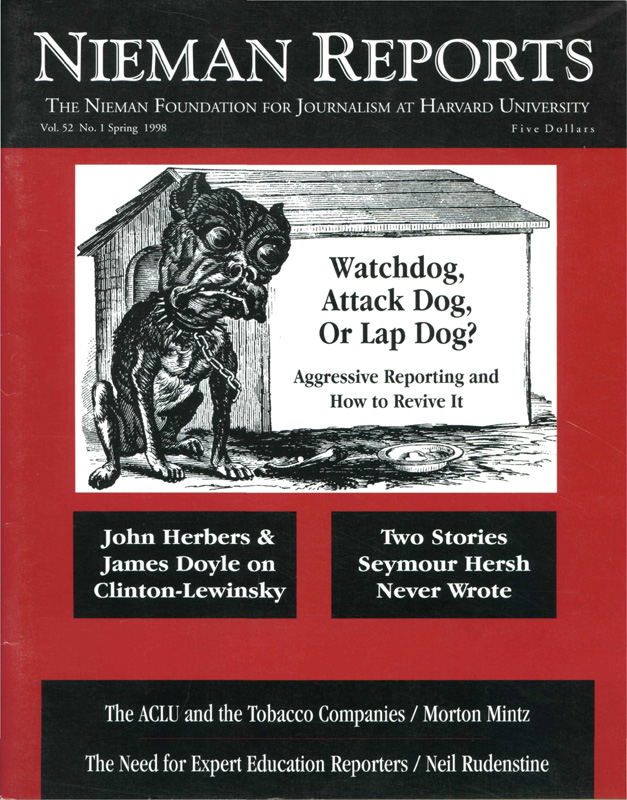
Somewhere back there, someone decided that rather than jump off a slave ship and kill themselves, they saw a future. Rather than give up and die and not deal with the horrors of plantation life, they decided there was a future. I'm testimony to that. Therefore they saw in some sense that my future was here, this was my land. They had an investment here and I'm testimony to that. With that in mind, then this history is as much my history as your history. This history is as much my history as anyone's history. With that recognition, we as a people have to engage history together. It's not a black history, it's not a white history. It's about an American history.
Orlando Bagwell, founder and President of ROJA Productions, a Boston-?based independent film and television production company, at a Nieman Fellows Seminar January 22, 1998.



